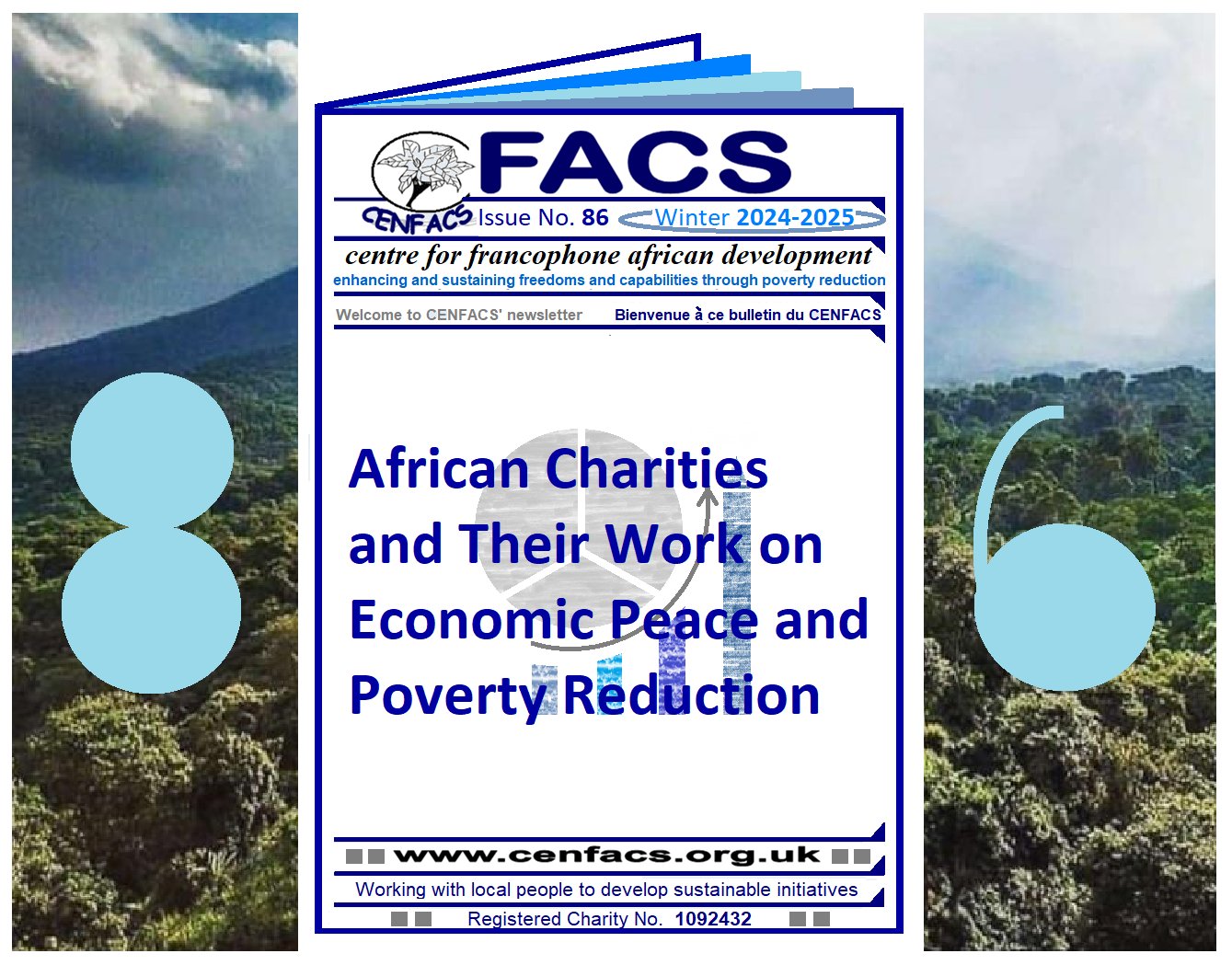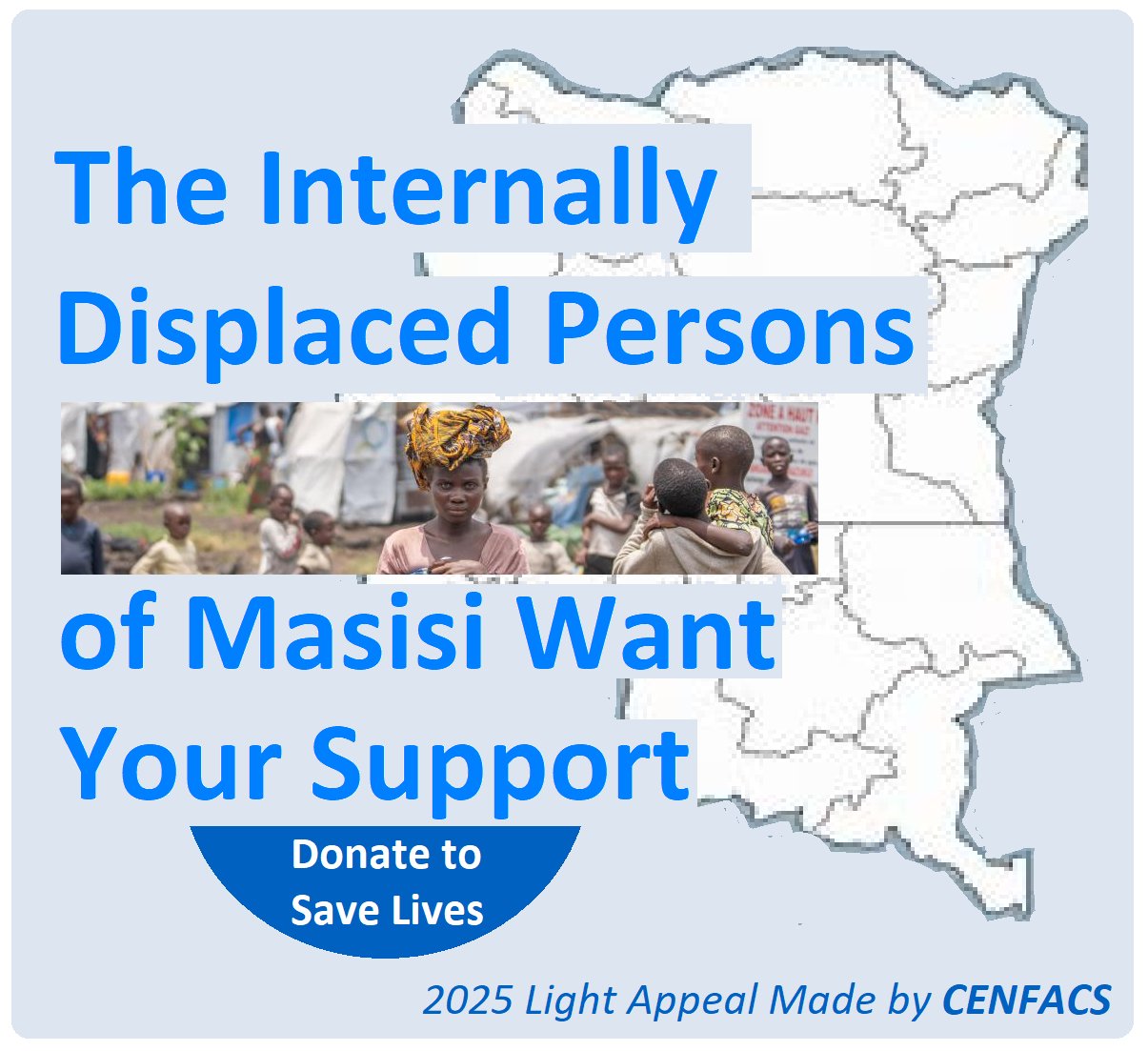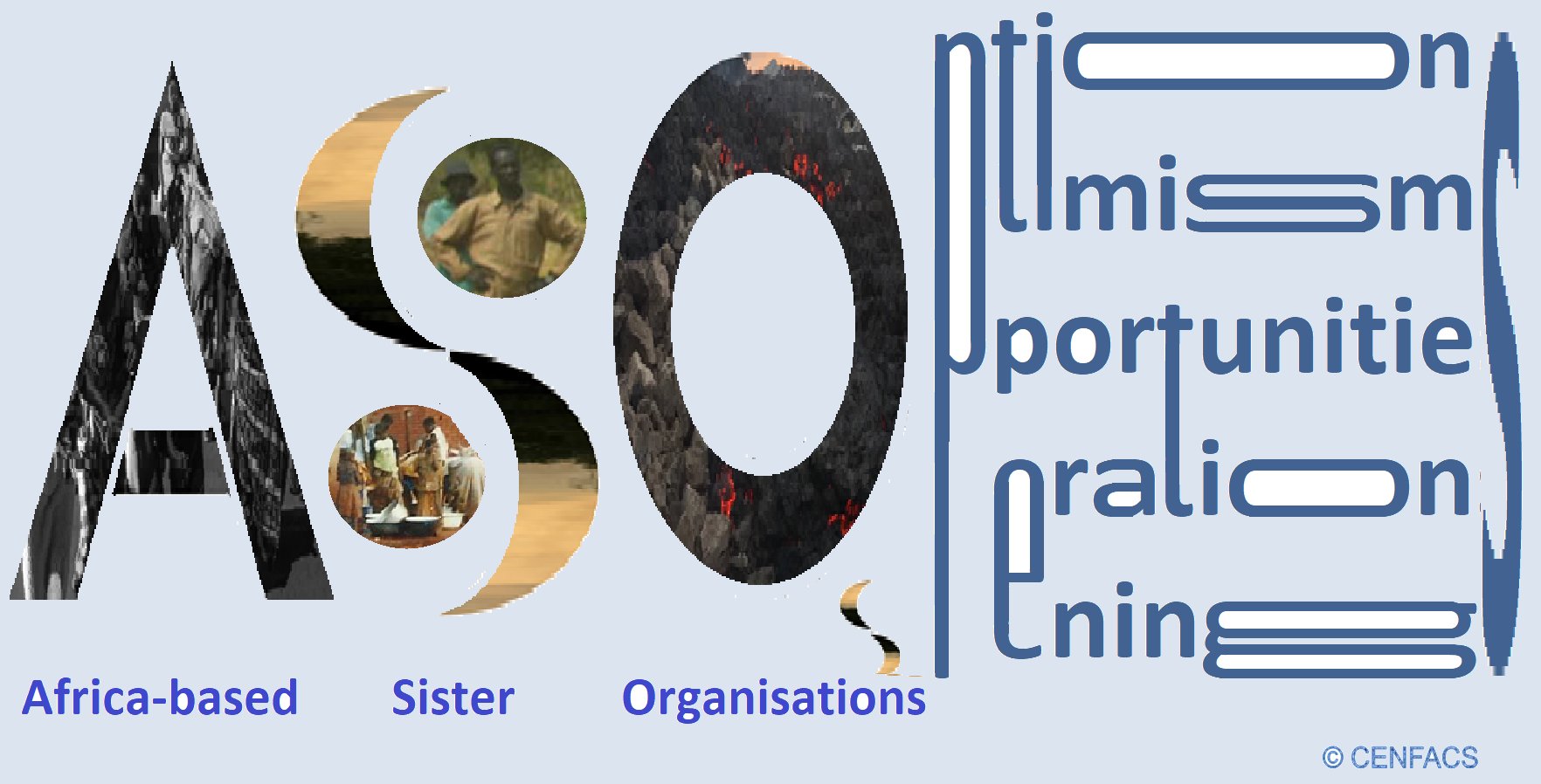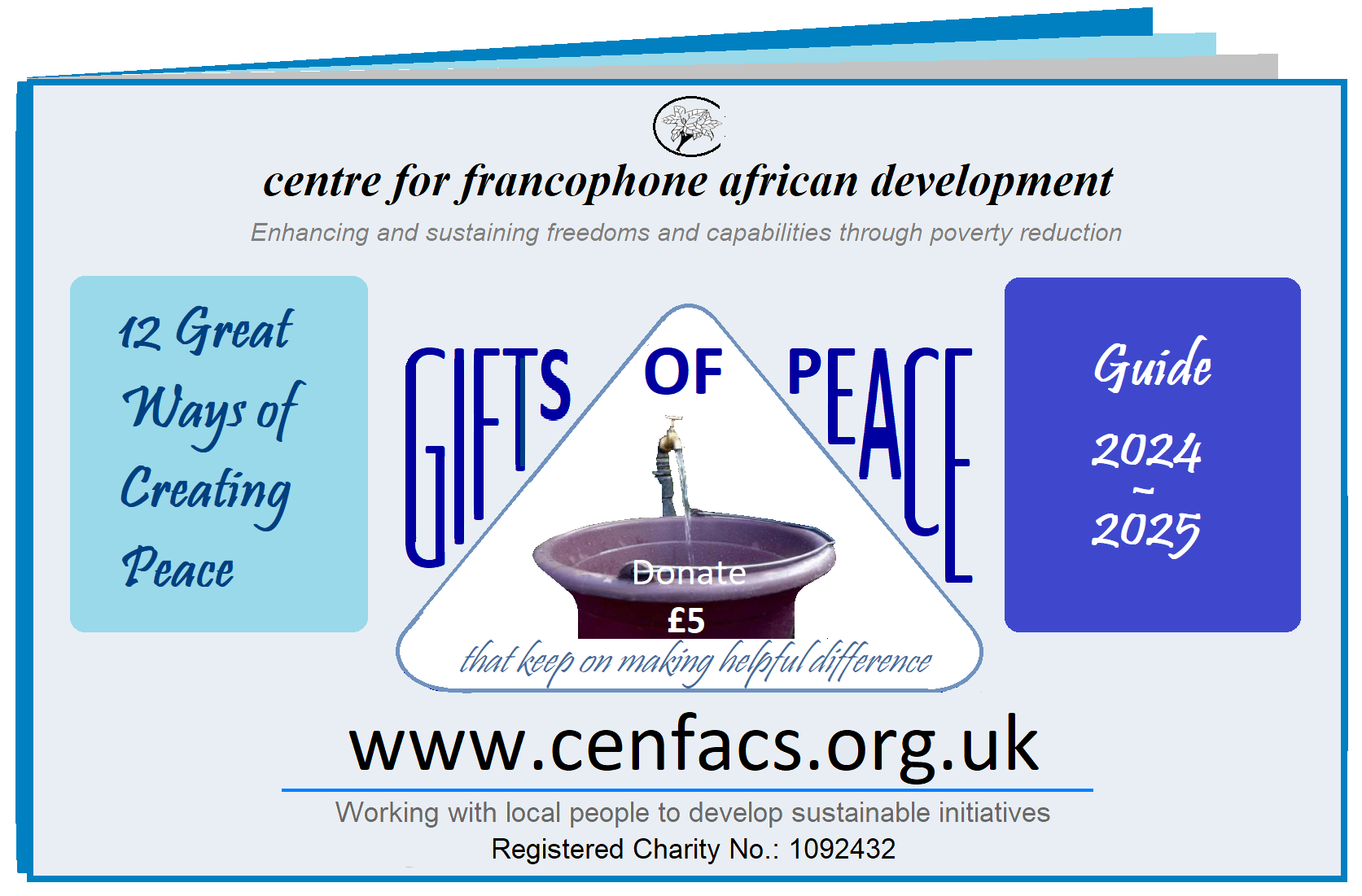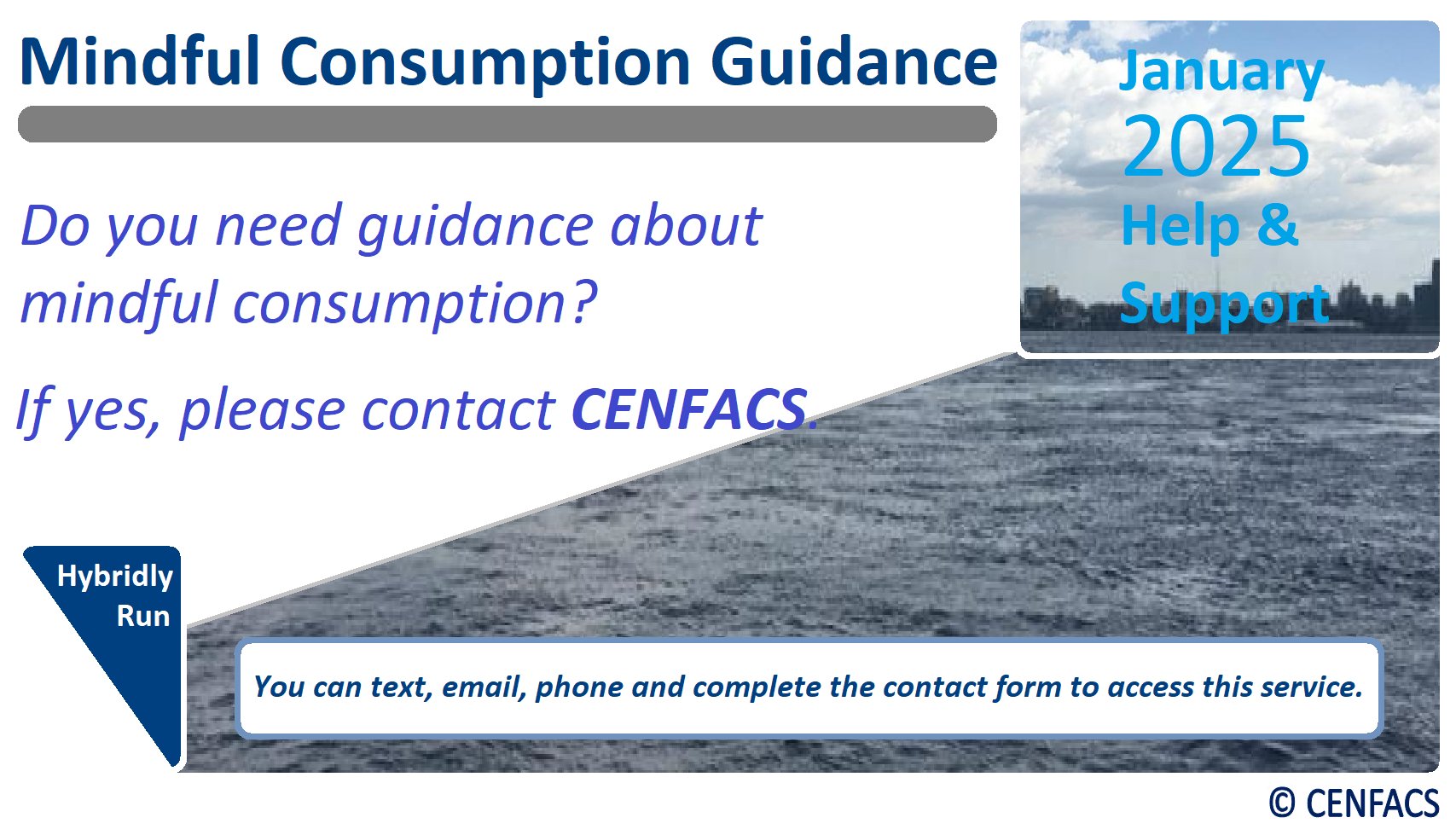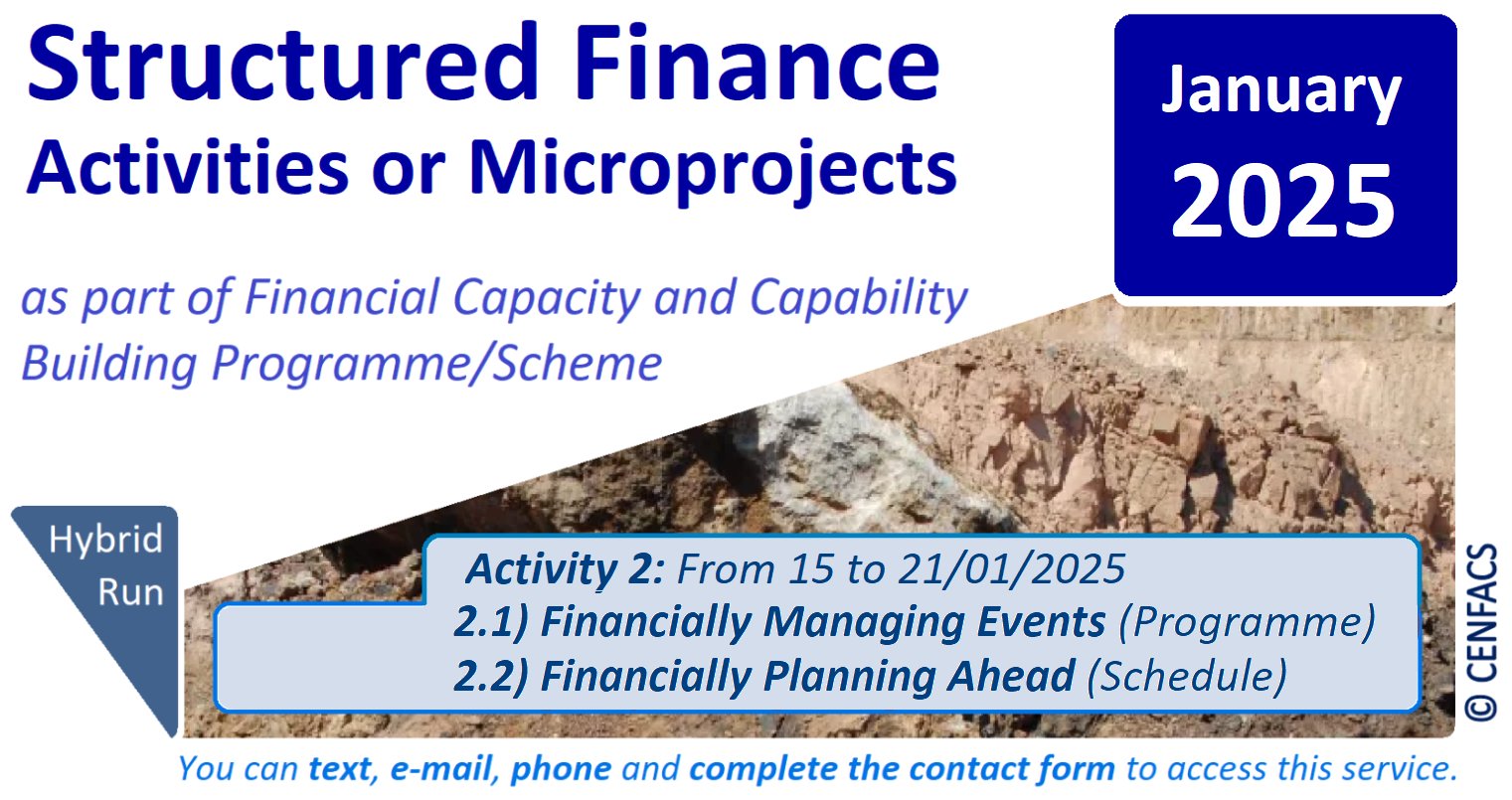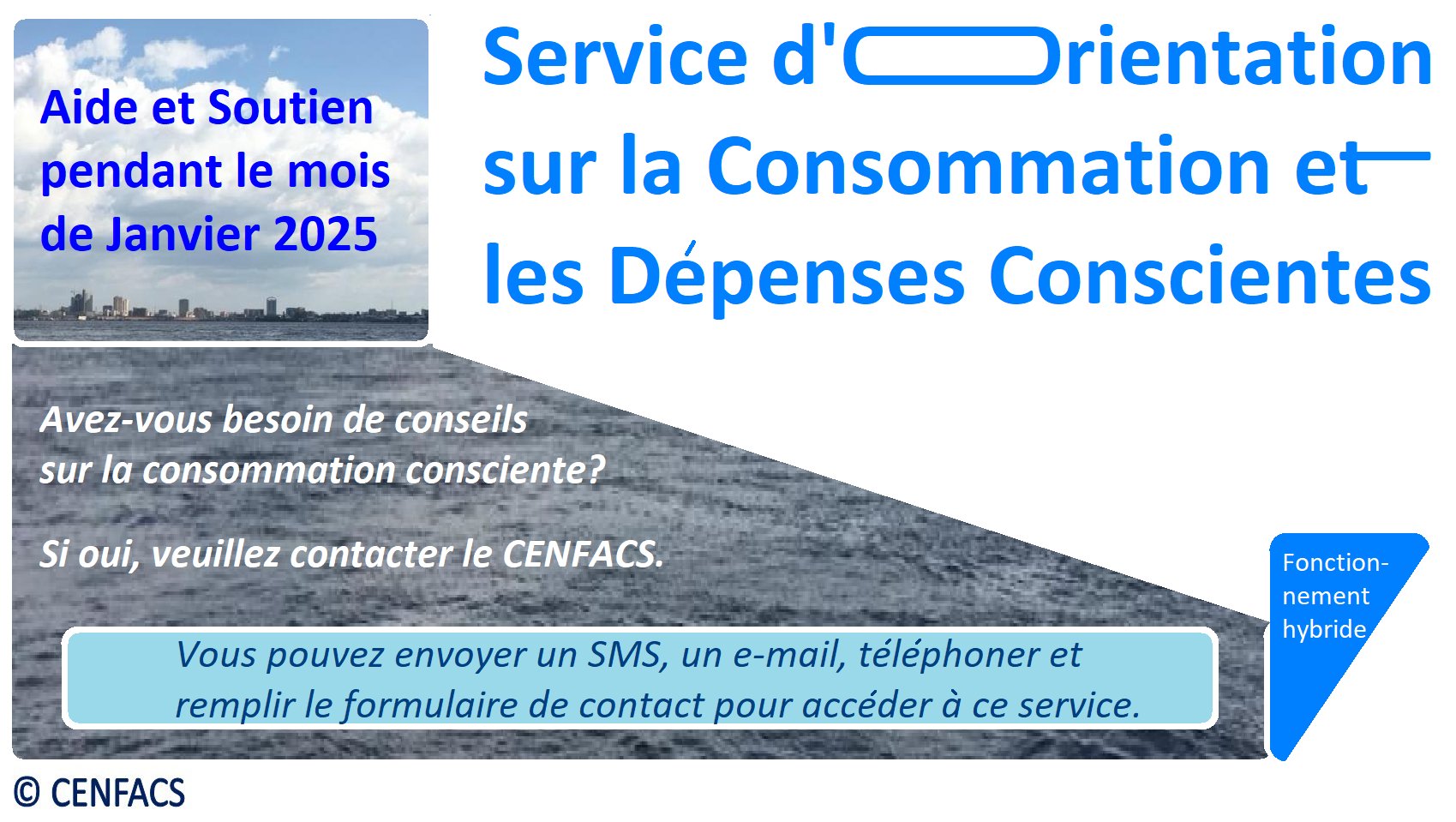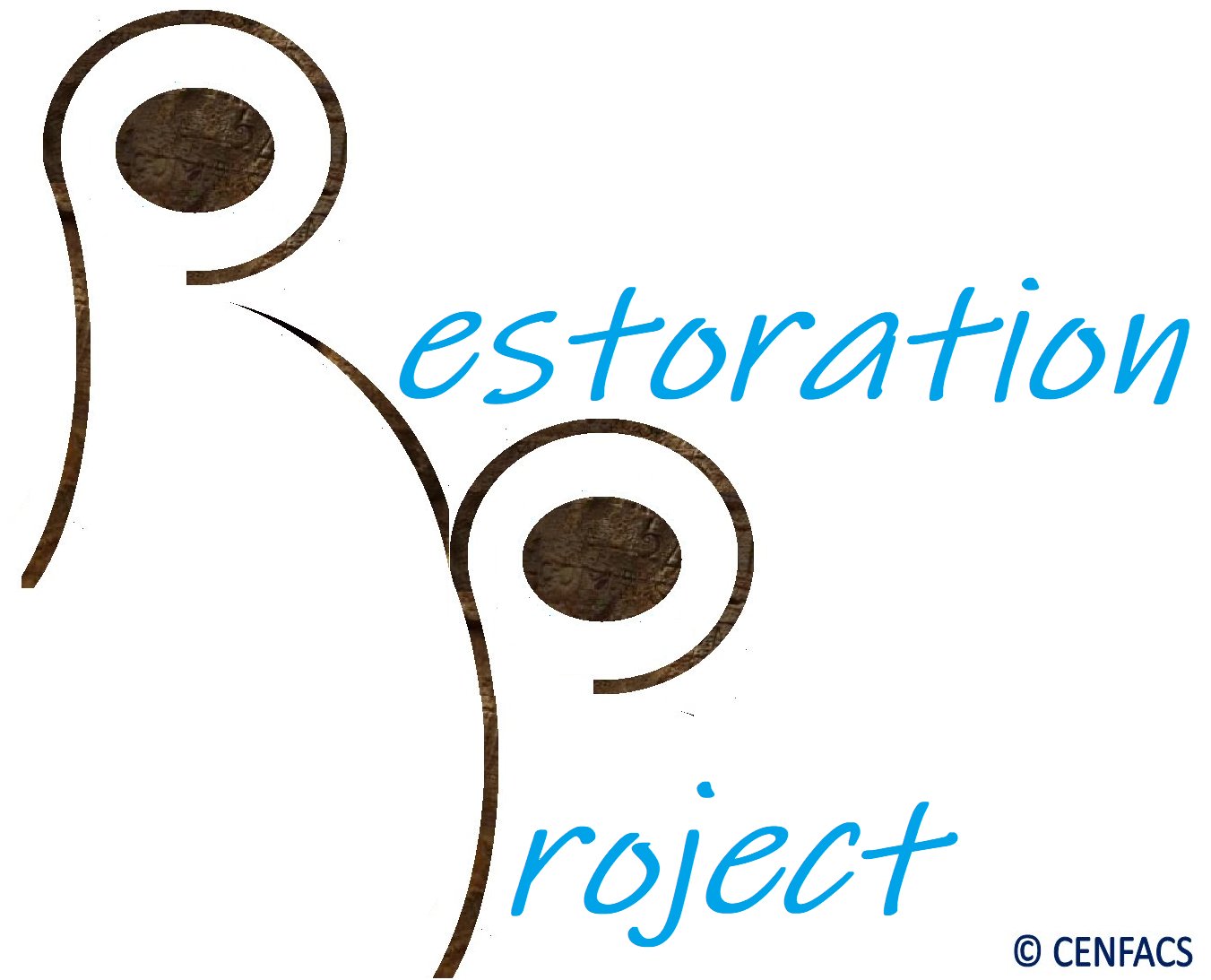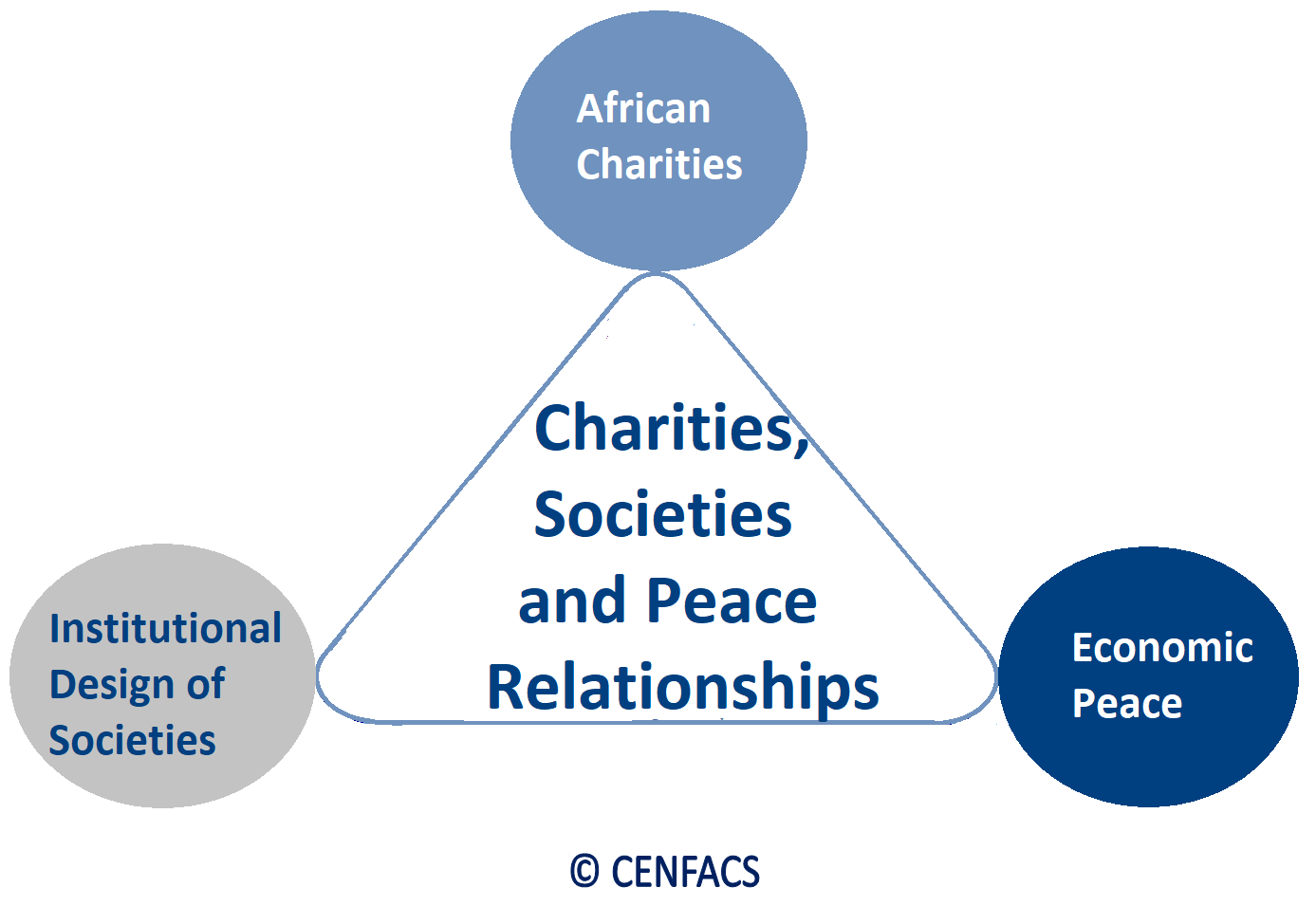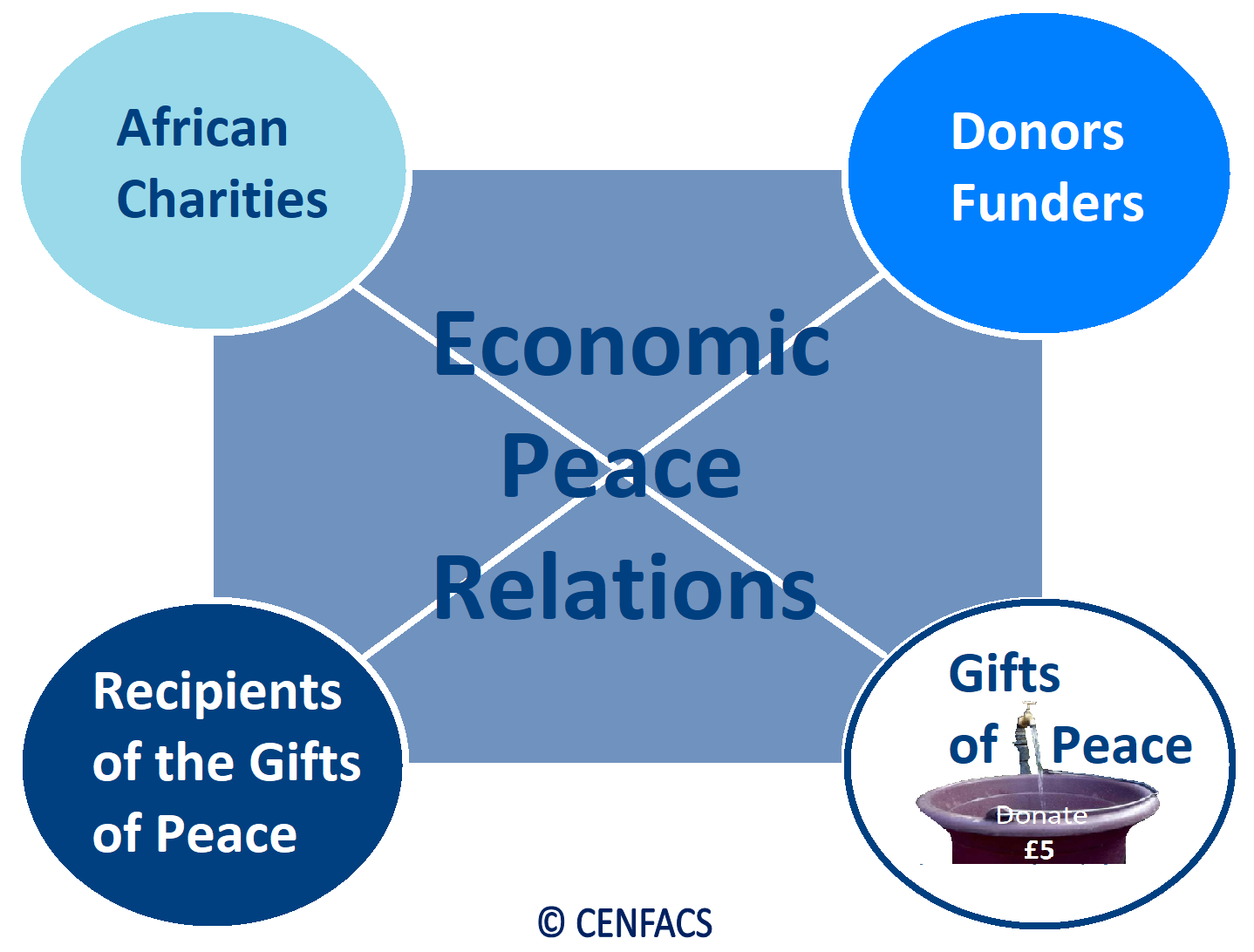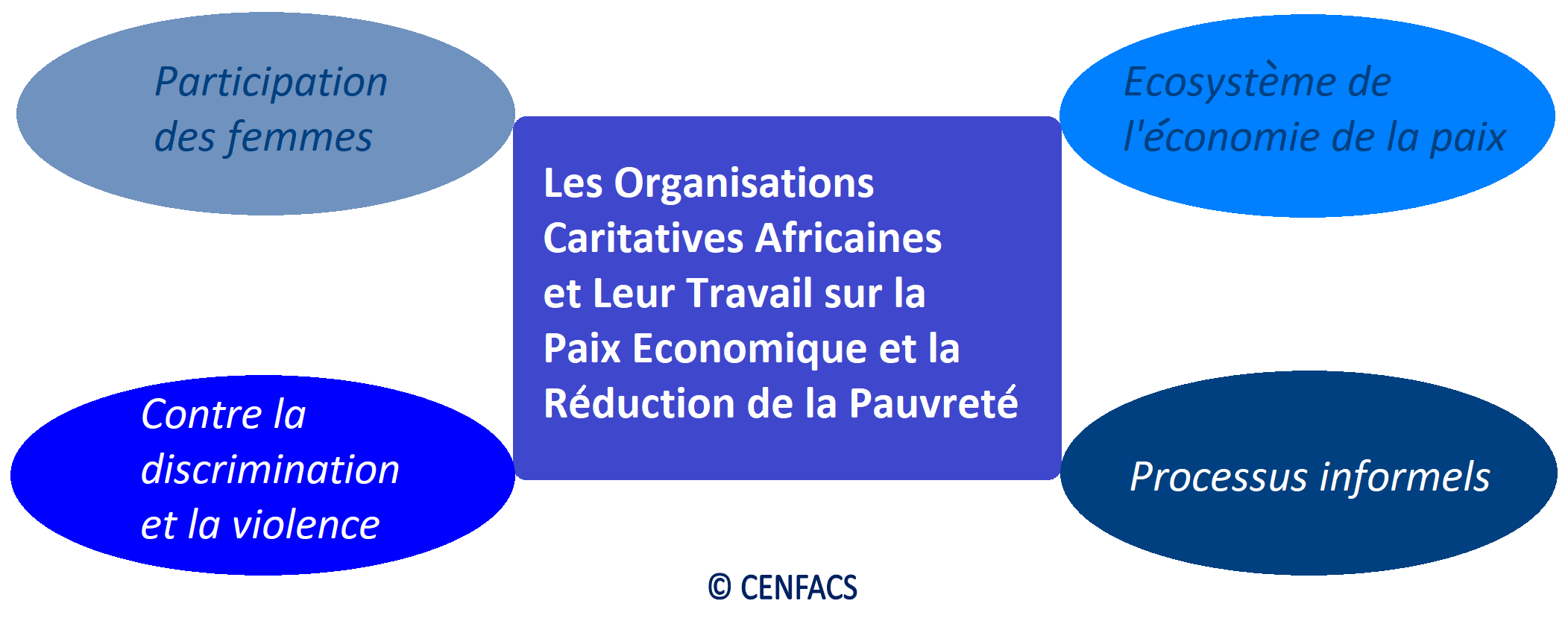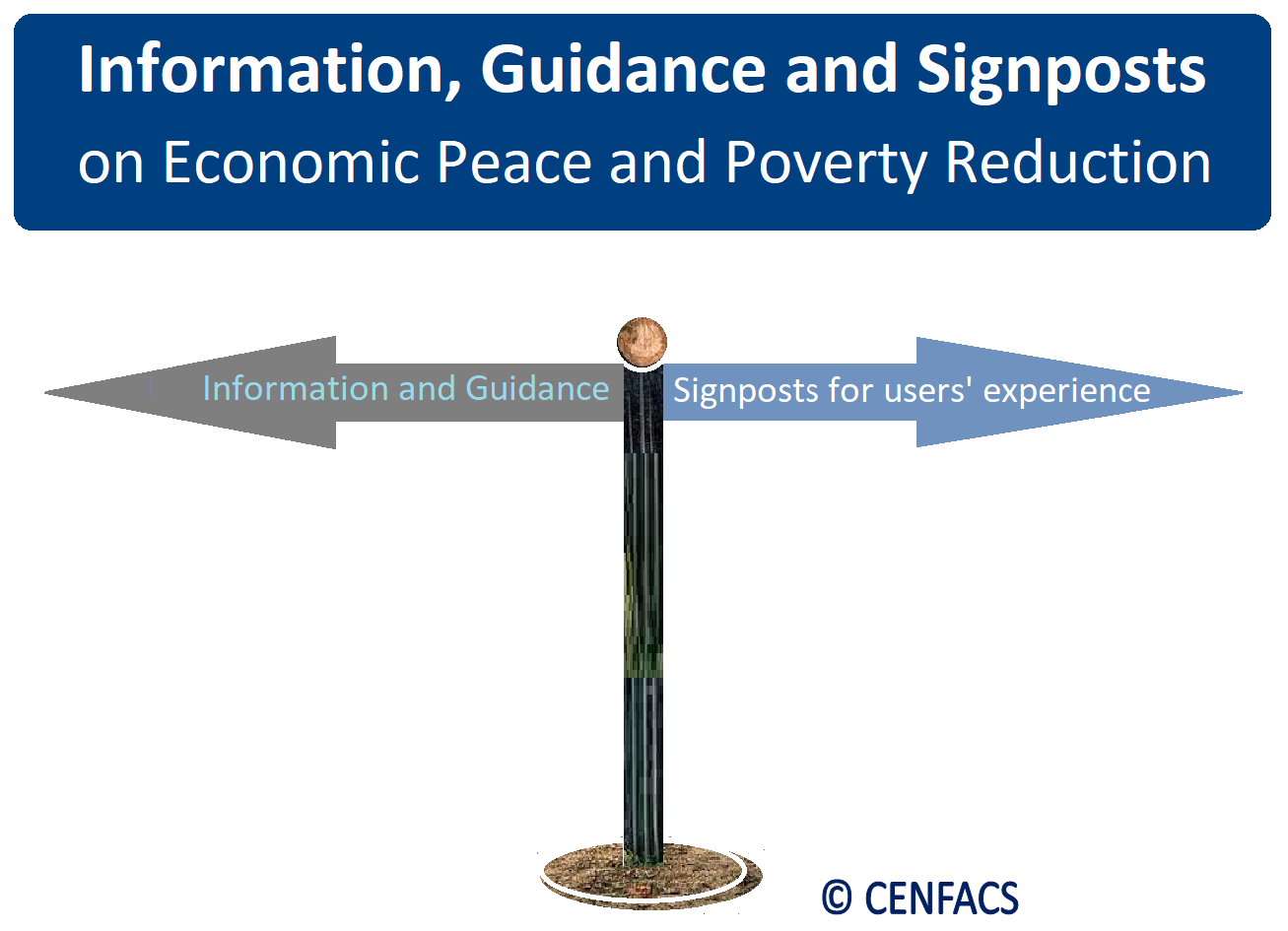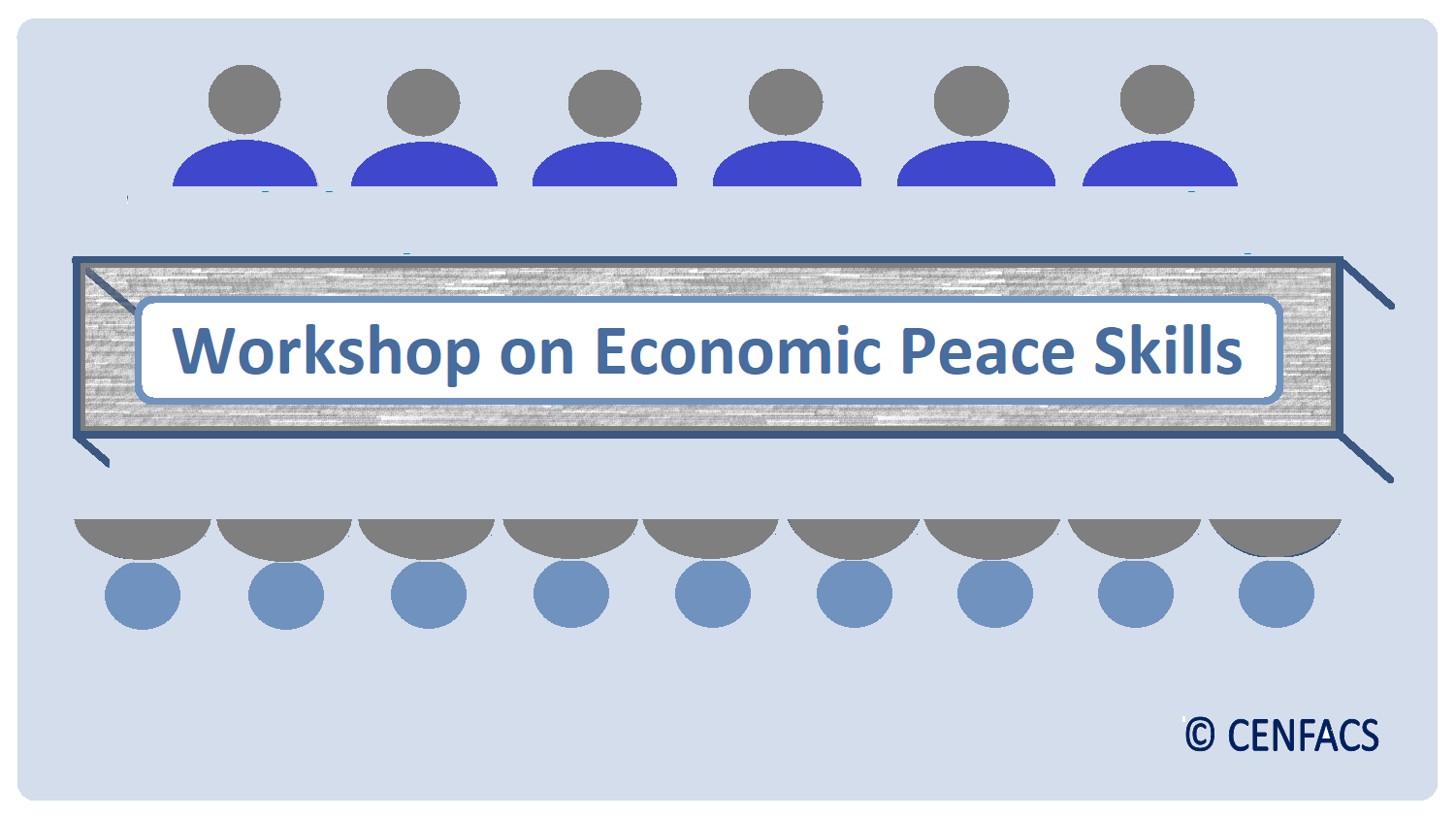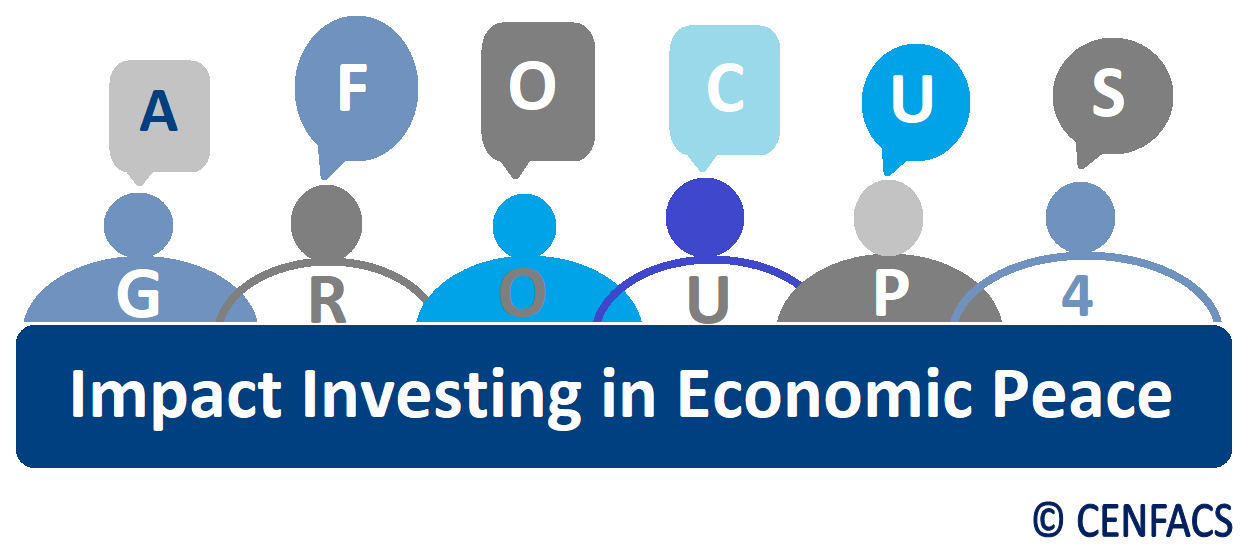Welcome to CENFACS’ Online Diary!
15 January 2025
Post No. 387
The Week’s Contents
• FACS, Issue No. 86, Winter 2024/2025: African Charities and Their Work on Economic Peace and Poverty Reduction
• The Internally Displaced Persons of Masisi Want Your Support
• Africa-based Sister Charitable Organisations in 2025 – a Year of Opportunities, Openings, Operations, Optimisms and Options to Reduce Poverty
… And much more!
Key Messages
• FACS, Issue No. 86, Winter 2024/2025: African Charities and Their Work on Economic Peace and Poverty Reduction
African Charities contribute in many areas of life of those in need in Africa. One area of contribution or their work is peace, particularly but not exclusively economic peace. Their work on economic peace is what the 86th Issue of FACS is about.
The 86th Issue deals with peace economics, specifically how African Charities use the principles and recipes of peace economics in order to further reduce poverty and enhance sustainable development for their project beneficiaries.
The 86th Issue, which comes at the appropriate time when we are dealing with the Festive Gifts of Peace, draws from economic peace theories and how they can be applied on the charity and voluntary sector settings and context.
The 86th Issue as well refers to the Global Peace Index developed by the Institute for Economics and Peace (IEP). According to the IEP (1),
“Sub-Saharan Africa recorded a fall in peacefulness on the 2024 Global Peace Index, with the average score in the region deteriorating by 0.89 per cent over the past year. Sub-Saharan Africa is the second last peaceful region behind the Middle East and North Africa, with three of the ten least peaceful countries in the world found in the region”.
With reference to what the IEP’s argument, the 86th Issue looks at the ecosystem of peace economics and how African Charities are trying to work with the problems their beneficiaries face during pre-crisis and post-crisis reconstruction periods. This includes the work of prevention and resilience they are undertaking so that their beneficiaries can build a stronger and sustainable peace.
More details about the 86th Issue of FACS can be found under the Main Development section of this post.
• The Internally Displaced Persons of Masisi Want Your Support
This is an appeal from the people of the territory of Masisi, North Kivu in the Democratic Republic of Congo regarding the insecurity and humanitarian conditions they are experiencing. The following sources of information and data explain what they are undergoing.
• • Sources of Information and Data Summarising What Is Happening in Masisi
According to the ‘un.org.’ (2),
“Between January 1st and 5th, over 100,000 people were forced to flee the fighting between the M23 and the Congolese army and their allies in Masisi territory”.
Médecins Sans Frontières (MSF) (3) also states that
“More than 10,000 people seek refuge in Masisi hospital and MSF base”.
Yet, Masisi hospital does not have the capacity to welcome such as huge number of people seeking refuge.
Additionally, ‘aa.com.tr’ (4) points out that
“More than 2.8 million people are already displaced in North Kivu, more than one-third of the population of the province”.
This displacement is due to the ongoing fighting between the Congolese army and rebel armed groups. Whatever the reason each side involved in this fighting has, it is not simply possible or acceptable that innocent people of Masisi bear the brunt of their fight.
The Internally Displaced Persons of Masisi Want Your Support!
• • Donate to Support Them
You could donate to support them. You can give either your influence or money or both to support them.
If you decide to provide influence, you could put your positive influence on those who have the key to this humanitarian crisis or the factors feeding this crisis so that the Congolese victims of this crisis can move out of it.
If you choose instead to donate money, you can give £7 or any amount above. Your money will be allocated as follows:
£3 from your £7 can be used to meet the sanitation needs of the internally displaced people of Masisi
£4 can assist them in accessing safe drinking water and medical care, while releasing pressure at the Masisi General Hospital.
Please, let us give hope to and strengthen resilience of these displaced people of Masisi.
To support and or enquire about this appeal, please contact CENFACS.
• Africa-based Sister Charitable Organisation in 2025 –
A Year of Opportunities, Openings, Operations, Optimisms and Options to Reduce Poverty
Every year brings along with it challenges and opportunities. 2025 does not make any exception as it brings both challenges and opportunities. 2025 could be a year of challenges and opportunities for Africa-based Sister Charitable Organisations (ASCOs).
ASCOs can do their own SWOT analysis to identify and determine the internal Strengths and Weaknesses of their organisations as well as the external Opportunities and Threats they may come across throughout 2025. They can as well conduct PEST analysis or assess the four external factors of this PEST analysis and find how these factors can affect their 2025 performance and activities. These well known PEST analysis factors are political, economic, social and technical.
By focusing on opportunities and openings from the SWOT analysis rather than on the other three elements of SWOT analysis, they can appraise their external environment and their presence in African markets of poverty reduction as well as formulate a strategy and develop their services to work with those in need in a new or improved direction.
They need to consider the five mentioned attributes of what could be 2025 for Africa, which are 2025 as a Year of Opportunities, Openings, Operations, Optimisms and Options to Reduce Poverty. To explain these attributes, we have referred to a number of futurist and prospective studies and analyses. We have summarised or interpreted and included them in our own analysis as indicated by the following points.
• • 2025 as a Year of Opportunities and Openings
2025 as a year of opportunities and openings to reduce poverty means that there will be favourable or advantageous conditions for Africa to reduce poverty, and ASCOs can take advantage of those conditions. It is also a year of chance for them. What are those conditions and chances?
We have summarised and numbered below these opportunities and openings (OO) and the possible actions (PA) to be taken to grab them.
OO1: The website ‘sierraeyemagazine.com’ (5) indicates that
“With Africa’s population to reach 1.5 billion in 2025, the continent’s youth represent a powerful force for innovation, entrepreneurship and societal transformation”.
PA1: ASCOs can engage more young people in their projects and programmes, especially at the level of volunteering.
OO2: Food insecurity will continue to be an issue in Africa in 2025.
PA2: High food insecurity will provide an opportunity for ASCOs to advocate or campaign so that food reaches the poor and vulnerable of their communities.
OO3: According to ‘ofamerica.org’ (6),
“With headline economic growth reaching approximately 3.2%, Africa ranked among the fastest-growing regions globally”.
PA3: ASCOs can campaign and advocate so the share of this economic growth can be distributed fairly to reach the poor or the community they serve.
OO4: 2025 could be a year of prolonged conflicts, poor rule of law, human rights abuses, discrimination, exclusion and unemployment.
PA4: ASCOs can start to plan to deal with all these problems should they happen.
OO5: 2025 could be a year of resurgence of resource nationalism in Africa. As ‘ofamerica.com’ (op. cit.) explains that “Africa’s vast renewable energy potential, including solar and wind resources, mineral wealth such as lithium and cobalt, and untapped markets in agriculture and technology, make it indispensable to global efforts towards climate resilience and economic growth”.
PA5: Africa’s minerals are at the heart of the global energy transitions and if some African countries decide to renegotiate their contracts on natural resources or the terms of joint-venture agreements with foreign direct investors, ASCOs need to be prepared to advocate for the equal share of the dividends from these contract renegotiations and terms for the poor in terms of direct dividend transfers.
etc.
• • 2025 as a Year of Optimisms
2025 could be a year that Africa needs to take hopeful view of things that may happen and expect the best possible outcomes from these things. Among these things, we can mention below some Optimisms (O) together with Possible Actions(PA) to be taken.
O1: The Lobito Corridor, which consists of a 1,300 km railway line traversing Angola, is a project connecting the Angolan port of Lobito on the Atlantic Coast to the city of Kolwezi in the Democratic Republic of Congo (DRC). The corridor aims to transport materials from the mineral-rich, DRC and Zambia to the markets in the USA and Europe.
PA1: ASCOs working in the area of transportation can assess the impact of this Corridor in terms of poverty reduction on their users, who may use it or be living along side of it; and generate projects.
O2: 2025 is a year of democratic transitions and consolidations
PA2: Democratic transitions and consolidations are unfinished business and still continue in Africa as national and/or legislative polls will take place in Africa in 2025, and ASCOs need to be optimist in some cases that these polls will lead to substantive democracy, which will result in tangible poverty reduction results.
O3: 2025 is as well a year of deepening of the African Continental Free Trade Area (AfCFTA).
PA3: As the operationalisation of the AfCFTA continues, the Pan-African Payment and Settlement System (PAPSS) is facilitating cross-border transactions in local currencies. And multinational ASCOs can help or use it to undertake cross-border payments while reducing transaction costs.
O4: African Union is now full member of G20 (Group of 20).
PA4: African Union was granted a permanent seat at G20 implying from the poverty reduction perspective that ASCOs need to realistically and optimistically assess how G20 can be relevant for their work with those in need and how this full membership can help align and coordinate policies and views on the topics of poverty reduction across Africa and within the G20.
• • 2025 as a Year of Full Operations
2025 is also a year of recovery operations to reduce poverty in the post-pandemic and enduring cost-of-living eras. Although the economic recovery is slow and economic growth is low for a good recovery, many operations have continued to take ground or expand. Now that many of the activities and services have been curated across Africa following the lingering effects of the coronavirus disaster and the cost-of-living crisis, ASCOs can seize the momentum of the New Year to increase the volume of their operations to a full functioning capacity.
• • 2025 as a Year of Options
2025 is finally a year of options to reduce poverty via international cooperation and foreign direct investment. Today, China, USA, Russia, UK and the countries members of European Union are all together competing to get their share of market in Africa. This competition provides options for Africa. This also gives options for ASCOs in terms of the choice they have to make regarding their work on poverty reduction.
The above possibilities show that Africa-based Sister Charitable Organisations can cautiously grab the opportunities and openings of the 2025 year in order to operate and further up their poverty reduction work and regain the lost hard-won poverty reduction results; lost results because of economic crises, climate change and armed conflicts in Africa. Besides that, they need to be optimist, not pessimist about Africa and the people they serve; while choosing from at the new options brought various investors.
For those optimist Africa-based Sister Charitable Organisations wanting to fully operate, grab the above-mentioned opportunities and openings, and take the right options but finding some difficulties to operate; they can discuss the matter with CENFACS so that together we can plan a 2025 market development strategy.
Need a market development strategy or plan in order to fully operate, mindfully take option and optimistically engage with the 2025 array of tremendous opportunities and openings to reduce and end poverty in Africa; please do not hesitate to contact CENFACS.
Extra Messages
• Gifts of Peace, Edition 2023-2025, Still Running
• Guidance Service on Mindful Consumption and Spending
• New Year’s Structured Finance Activities/Micro-projects under Financial Capacity and Capability Building Programme/Scheme: Activity 2
• Gifts of Peace, Edition 2024-2025, Still Running
Our Season of Giving through the Gifts of Peace for Edition 2024-2025 has not yet finished. The Gifts-of-Peace Campaign will end on 31 January 2025. We still have almost 2 weeks to go until the end of this month. We are making a plea to those who have not yet managed to support to keep these gifts and our agenda for peace in their mind.
If you have not yet supported, you can still do something great for poverty relief and for healing the lingering economic effects of the coronavirus pandemic and the scars of the cost-of-living crisis.
Although the deadline for the Season of Donation for these gifts is 31 January 2025, we will still accept any donations made after this deadline to enable those who will not be in a position to donate by this deadline to have a chance to donate after.
Please do not wait for the expiration of the deadline as the needs are pressing and urgent.
We know that many supporters of good causes have been affected by the cost-of-living crisis. We are as well aware of the current economic situation is not an easy one (with inflation of 2.5% last December and low economic growth in the UK), which complicates the way people donate to good causes.
However, for those who can please do not hesitate to support these noble and beautiful causes of peace since the potential beneficiaries of them are trebly impacted by:
a) The lingering economic effects of previous crises (like the coronavirus)
b) The already extremely poor conditions in which they are living
c) The scars of the enduring cost-of-living crisis.
Every support counts to help reduce and end extreme poverty.
Please keep the Gifts of Peace in your mind as the giving season continues.
For further details about these Gifts of Peace and or to support, go to http://cenfacs.org.uk/supporting-us/
We look forward to your support. Thank you!
• Guidance Service on Mindful Consumption and Spending
For those of our users who are looking for help and support in terms of consuming and spending mindfully, we can work with them so that they can navigate their way out mindless consumption-based poverty. We can together explore the following options or tips to deal with mindful consumption and spending:
√ Improving their spending intent
√ Creating a budget to deal with emotional triggers
√ Using a pause before purchasing
√ Setting up cost cutting targets on budget items such as takeaways, eating out, clothing, etc.
√ Switching to cheap mindful retailers to save money
√ Trimming budget
√ Prioritising expenses
√ Setting up a policy not to borrow money for mindless expenses
√ Adopting cost-saving behaviour
√ Tracking their spending
√ Briefly, developing a strategy or policy for mindful spending.
We can even work with them on a project to write their budget journal for mindful spending.
The above-mentioned options or tools will help them to build confidence throughout 2025 and beyond.
For those users who would like to dive into the reduction of mindless consumption-based poverty, we can provide them with online and print resources relating to this matter. These resources highlight the mindful spending tips and hints.
There is a lot of online resources and websites they can sign up and receive advice on this matter.
• New Year’s Structured Finance Activities/Micro-projects under Financial Capacity and Capability Building Programme/Scheme: Activity 2
We are continuing Financial Capacity and Capability Building Programme and Scheme, as planned. We are available to work in hybrid mode with users via the Financial Capacity and Capability Building Programme (FCCBP) or Scheme (FCCBS) so that you can be stronger in this year. Both FCCBP and FCCBS will help beneficiaries to reduce risks linked to financial incapacity and incapability while improving their intergenerational income and transfers.
The second activities of FCCBP and FCCBS, which will be run from 15 to 21 January 2025, have been highlighted below.
• • 15 to 21 January 2025: Financially Managing Events (Activity 2 of FCCBP)
This second Structured Finance Activity, which is part of Financial Capacity and Capability Building Programme and which is run as guidance sessions, consists of working with users to get the clues on how to financially manage events. It is about guiding users on a tactical, short-term and reactive process of making sure that their financial resources are used in most effective way possible with regard to events handling.
If any of our users need guidance about how to financially manage their events, they can ask CENFACS for answers.
• • 15 to 21 January 2025: Financially Planning Ahead (Activity 2 of FCCBS)
This second Structured Finance Activity, which is part of Financial Capacity and Capability Building Scheme, is about strategically and proactively creating detailed budgets for a week or month or year (2025) while setting up goals and timelines to achieve them on a long-term basis.
If any of our users need to draw a plan or strategy that explains how they can financially plan ahead, they can contact CENFACS.
Have a question about how to financially manage your events or need to draw a financial plan or strategy about your household matters, please do not hesitate to contact CENFACS.
In additions, if you have financial planning problems, you can communicate with CENFACS so that we can work together on your financial planning needs and help you stay stronger this New Year.
Message in French (Message en français)
• Service d’Orientation sur la Consommation et les Dépenses Conscientes
Pour les utilisateurs/rices de nos services qui recherchent de l’aide et du soutien, nous pouvons travailler avec eux/elles afin qu’ils/elles puissent se frayer un chemin endehors de la pauvreté aveugle basée sur la consommation. Nous pouvons explorer ensemble les options ou les conseils suivants pour faire face aux dépenses conscientes ou irréfléchies:
√ Améliorer leurs intentions de dépenses
√ Créer un budget pour faire face aux déclencheurs émotionnels
√ Faire une pause avant d’acheter
√ Mettre en place des objectifs de réduction des coûts sur les postes budgétaires tels que les plats à emporter, les restaurants, les vêtements, etc.
√ Faire des achats auprès des détaillants bon marché et conscients pour économiser de l’argent
√ Réduire le budget de dépenses
√ Prioriser les dépenses
√ Mettre en place une politique de ne pas emprunter d’argent pour des dépenses inconsidérées
√ Adopter un comportement d’économie de coûts
√ Suivi et contrôle de leurs dépenses
√ En bref, l’élaboration d’une stratégie ou d’une politique de dépenses conscientes.
Nous pouvons même travailler avec eux/elles sur un projet pour rédiger leur journal budgétaire pour des dépenses conscientes.
Les options ou les outils mentionnés ci-dessus les aideront à renforcer leur confiance tout au long de l’année 2025 et au-delà.
Pour les utilisateurs/rices qui souhaitent se plonger dans la réduction de la pauvreté aveugle basée sur la consommation, nous pouvons leur fournir des ressources en ligne et imprimées relatives à ce sujet. Ces ressources mettent en évidence les conseils et astuces pour dépenser consciencieusement.
Il existe de nombreuses ressources en ligne et de sites Web sur lesquels ils/elles peuvent s’inscrire et recevoir des conseils à ce sujet.
Si vous avez besoin de conseils sur la consommation consciente, n’hésitez pas à contacter le CENFACS.
Main Development
• FACS, Issue No. 86, Winter 2024/2025: African Charities and Their Work on Economic Peace and Poverty Reduction
The contents and key summaries of the 86th Issue of FACS are given below.
• • Contents and Pages
I. Key Terms Relating to the 86th Issue of FACS (Page 2)
II. Key Theories Used in the 86th Issue of FACS (Page 2)
III. African Charities and Their Contribution to Economic Peace (Page 3)
IV. African Charities and Their Attempt to Stop the Likelihood of Violent Conflicts (Page 3)
V. The Relationships between African Charities, Economic Peace and the Institutional Design of Societies (Page 4)
VI. The Relationships between African Charities, Gifts of Economic Peace, Recipients and Donors of These Gifts (Page 4)
VII. Les Organisations Caritatives Africaines et leur Application de l’Écosystème de l’Économie de la Paix sur les Questions de Genre (Page 5)
VIII. Les Organisations Caritatives Africaines et Leur Travail sur la Participation Égale des Femmes aux Processus de Paix Économique (Page 5)
IX. Les Organisations Caritatives Africaines et Leur Travail contre la Discrimination et la Violence Sexuelles et Sexistes pour Assurer la Paix Économique (Page 6)
X. Les Organisations Caritatives Africaines et Leur Travail avec les Femmes dans les Processus de Paix Économiques Informels(Page 6)
XII. Survey, Testing Hypotheses, E-questionnaire and E-discussion about African Charities’ Work on Economic Peace (Page 7)
XIII. Support, Tool and Metrics, Information and Guidance on Economic Peace (Page 8)
XIV. Workshop, Focus Group and Booster Activity about African Charites’ Work on Economic Peace and Poverty Reduction (Page 9)
XV. Giving and Project (Page 10)
• • Key Summaries
Please find below the key summaries of the 86th Issue of FACS from page 2 to page 10.
• • • Key Terms Relating to the 86th Issue of FACS (Page 2)
There are three terms used in the context of this Issue of FACS. These terms are African charities, economic peace and poverty reduction. Let us briefly explain these key terms.
• • • • African charities
To explain African charities, let us first clarify the word ‘charity’. Our explanation of this word comes from ‘howcharitieswork.com’ (7) which provides three statements, which are:
“a) A charity’s aims have to fall into categories that the law says are charitable b) It has to be established exclusively for what is known as public benefit c) Charities can’t make profits (that is; all the money they raise has to go towards achieving their aims; a charity can’t have owners or shareholders who benefit from it)”.
The term African charities relate to charities from Africa. We presume that our African counterpart charities would share the above-mentioned rules for charity. We also assume that the law in African countries would classify the African charities we are talking about as charitable as it is in the UK.
• • • • Economic peace
There are many definitions of economic peace whether used the expression economic peace or peace economics. To understand economic peace, let us recall what ‘un.org’ (8) argues about peace, which is
“Peace is more than the absence of conflict; it is a catalyst for economic well-being, laying the foundation for societies to thrive for generation to come”.
The ‘un.org’ sees the intricate connection between economics and peace. This intricate connection allows to speak about peace economics. Peace economics can be defined in many ways. In its behavioural approach to peace economics, D. Roy (9) argues that
“Peace economics is a field of study that focusses on analysing the economic factors that contribute to peace and conflict resolution. It explores the connections between economics, politics, and psychosocial dynamics to understand how economic policies and conditions can influence the likelihood of violent conflicts and the prospects for peace”.
Taking the same line of reasoning, ‘usip.org’ (10) states that
“Peace economics is the branch of economics that studies the design of societies’ political, economic, and cultural institutions and their interacting policies and actions to prevent, mitigate, or resolve any type of latent or actual violent conflict within and between societies”.
The 86th Issue will refer to these these definitions of peace economics to explain how African Charities contribute to economic peace and poverty reduction in Africa.
• • • • Poverty reduction
There are various perspectives on poverty reduction. Looking at poverty reduction from the monetary perspective, Y. A. Bununu (11) thinks that
“Poverty reduction can be considered as the improvement of an individual’s or group’s monetary expenditure to an amount above the poverty line while improving access to education, healthcare, information, economic opportunities, security of land-tenure, all the other deprivations associated with it”.
From this perspective, reducing poverty is about improving of people’s monetary expenditure to an amount above the poverty line while improving all the other conditions of better quality of their life.
Taking a historical and intertemporal view of poverty reduction, the website ‘borgenproject.org’ (12) argues that poverty reduction is evolving concept. It evolves from a simple to complex concept throughout the time to mean the following:
σ financial contributions to governments of poverty-stricken nations
σ achieving the goal of lifting as many people above the poverty line as possible
σ the extended relief programmes and education programmes focusing on sustainability in target communities.
The goalposts of poverty reduction keep moving depending on the types of hardship people face at a particular time of the history.
The above-named definitions shape the contents of the 86th Issue of FACS.
• • • Key Theories Used in the 86th Issue of FACS (Page 2)
Amongst the economic peace theories found within the literature on economic peace, there is the capitalist peace theory (CPT) which posits that market openness contributes to more peaceful behaviour amongst states, and that developed market-oriented economics are less likely to engage in conflict with one another. Since Montesquieu, the proponents of this theory believe that trade would decrease the attractiveness of war.
However, there are strong criticisms about the capitalist peace theory. Its opponents see in capitalism a source of conflict rather than of peace. As part these criticisms, ‘oxfordre.com’ (13) argues that
“CPT could establish itself as central theory of peace and war in two respects: First, it could serve as an antidote to critical approaches on the far left or far right that see in capitalism a source of conflict rather than of peace. Second, it could become an important complement to commercial liberalism that stresses the external openness rather than the internal freedoms as an economic cause of peace and that particularly sees trade and foreign direct investment as pacifying forces”.
The 86th Issue cautiously interprets this theory in looking at its positive elements.
There is also the modern economic peace theory (14) which states
“Rich democracies have more open economies, and therefore the fewest wars with each other. By contrast, poor democracies tend to have lower sensitivity and integration, while non-democracies will be less attentive to any internal costs of coercion, so that both have larger conflicts of interest with other states, including rich democracies. Thus, the modern economic peace theory predicts a dyadic peace that is strongest among rich democracies”.
The 86th Issue takes into account the premises of the modern economic peace theory and how it can be related to the new democracies of Africa which are integrated within the African Continental Free Trade Area (AfCFTA), in particular whether or not the AfCFTA helps them avoid wars between them.
There are other valuable theories that need to be listed, such as peace as social construct, developmental peace which promote sustainable peace through multi-dimensional development, etc.
Additionally, the 86th Issue refers to the theories of institutional design. On this matter, ‘cambridge.org’ (15) notes in a book titled ‘Theories of Institutional Design’ published with the Research School of Social Sciences at the Australian National University that
“Social and political institutions shape the patterns of individual interactions that produce social phenomena and with the ways in which those institutions emerge from such interactions”.
These theories of institutional design are also relevant in the way African Charities approach economic peace. As the ‘gov.uk’ (16) puts it,
“Charities and social enterprises – the social sector – are the core of civil society”.
In Africa, African Charities are the centre of their civil societies. They can combat the threats to democracy, deliver social good. Their voice matters for poverty reduction and the enhancement of sustainable development. They can raise a large amount of income to support civil society and poverty reduction in Africa. Therefore, they need to have a say on the way societies are institutionally designed in Africa.
• • • African Charities and Their Contribution to Economic Peace (Page 3)
African Charities (AC) contribute in a number of ways or projects or programmes to economic peace in Africa. Their ways of contributing include the following:
~ advocacy for peaceful means of conflict resolution
~ campaign for gender balance and equality for all
~ provision of clean and safe water to the people in need
~ fight for the uphold of human rights
~ building lasting capacity for the youth
~ holding peace negotiation talks and conducting negotiations
~ advocating for the use of diplomatic means of conflict resolution
etc.
The above is just a few of the many types of work that African Charities do to contribute to economic peace and poverty reduction in Africa. The African Charities are many of varying sizes and kinds. Examples of them that are involved in economic peace include Peace African Hope Organisation and the Coalition for Peace in Africa.
• • • African Charities and Their Attempt to Stop the Likelihood of Violent Conflicts (Page 3)
Stopping the likelihood of violent conflicts is one of the economic peace initiatives that can be taken by AC. To take this initiative, AC use local potentials for peace with both war and non-war communities to engage them in peacebuilding.
They do it by
~ working with local actors in different of peace
~ developing conflict prevention measures
~ helping reduce polarization between communities
~ using nonviolent approaches to protection
~ engaging with armed groups and actors
~ building community resilience
~ minimising violence
~ promoting peace
~ redrawing social contract
~ re-establishing social capital
etc.
Although we have mentioned the above initiatives, there are more ones that can be taken. It all depends on AC’s area of work or expertise.
• • • The Relationships between African Charities, Economic Peace and the Institutional Design of Societies (Page 4)
Like in any society or region of the world, there is an influence or interaction between African Charities, Economic Peace and the Institutional Design of Societies.
Indeed, like any charity in any place of the world, AC can promote economic peace by addressing inequalities, supporting local communities, and providing education and training that can lead to jobs creation. In order for AC to better operate, they need to consider the structures, institutions and policies that shape how communities function as well as how AC operate.
In this respect, societal needs that African governments and market mechanisms may overlook, AC can address them. They can address them to have a stable and prosperous economic environment where resources are equitable distributed, opportunities for economic participation are accessible for all and conflicts are minimised. For instance, they can contribute to the policy of silencing the guns in Africa.
• • • The Relationships between African Charities, Gifts of Economic Peace, Recipients and Donors of These Gifts (Page 4)
Gifts of Peace are one of the CENFACS favourites gifts to give to help reduce poverty and enhance sustainable development during the Festive Season. They have links with AC, those who give the gifts and those who receive them. There relationships can be broken down as follows:
a) AC act as intermediaries to facilitate the process of giving and receiving
b) Donors or funders provide the gifts of economic peace by giving either money or good or service.
c) Recipients are the beneficiaries from the economic peace donations
d) Gifts of economic peace are the acts of giving in order to help recipients reduce poverty, and possibly change the quality of their life.
The relationships between AC, donors and recipients are based on need, trust, altruism and the shared goals of poverty reduction and economic peace.
• • • Les Organisations Caritatives Africaines et Leur Application de l’Écosystème de l’Économie de la Paix sur les Questions de Genre (Page 5)
D’après usip.org (op. cit.),
«L’économie de la paix peut être comprise comme un écosystème, et le fait de fixer son regard sur les principes de conception, plutôt que sur les spécificités du contexte, contribue non seulement à la reconstruction d’après-guerre, mais aussi à la prévention et à l’atténuation de la violence, ainsi qu’à la construction d’une communauté et d’une résilience à la violence».
Avec la compréhension de l’économie de la paix en tant qu’écosystème, la plupart des organisations caritatives africaines essaient de s’assurer que les principes de conception répondent également aux questions de genre. Elles s’efforcent de prévenir la violence fondée sur le genre tout en bâtissant une communauté égalitaire qui résiste à la violence fondée sur le sexe. Ce travail concerne également la reconstruction d’après-guerre.
• • • Les Organisations Caritatives Africaines et Leur Travail sur la Participation Égale des Femmes aux Processus de Paix Économique (Page 5)
Le travail des organisations caritatives africaines qui travaillent sur les questions de participation des femmes comprend des efforts visant à augmenter le nombre de femmes dans les efforts de prévention, de médiation et de résolution des conflits. Il inclut également la probabilité d’un accord de paix durable.
Par exemple, ces organisations s’efforcent d’avoir un pourcentage accru de femmes négociatrices et médiatrices dans les processus de paix actifs pour la plupart des conflits en Afrique.
Cependant, il faut reconnaître que, bien qu’il y ait eu un travail digne d’intérêt pour accroître la participation des femmes dans les processus de paix économique, il reste encore un long chemin à parcourir pour obtenir une participation pleine, égale et significative dans les missions de rétablissement et de consolidation de la paix économique.
• • • Les Organisations Caritatives Africaines et Leur Travail contre la Discrimination et la Violence Sexuelles et Sexistes pour Assurer la Paix Économique (Page 6)
Les organisations caritatives africaines qui luttent contre la violence basée sur le genre (comme la Coalition Contre la Violence à l’Égard des Femmes, Sonke Gender Justice et d’autres) tentent de s’assurer que les dispositions relatives au genre sont visibles dans les accords de paix. Comme toute organisation sensée, elles appliquent la Convention de l’Union Africaine sur l’élimination de la violence à l’égard des femmes et des filles (17).
Elles se battent également pour que les femmes et les filles reçoivent un soutien médical et non médical pour faire face à la violence basée sur le genre. Comme en République Démocratique du Congo où 733 cas de violences sexuelles liées aux conflits ont été enregistrés en 2023 (18).
• • • Les Organisations Caritatives Africaines et Leur Travail avec les Femmes dans les Processus de Paix Économiques Informels (Page 6)
Il existe des processus de paix économiques formels et informels. Dans les deux processus, les organisations caritatives africaines laissent leur marque. En considérant les processus de paix économiques informels, leur travail de consolidation de la paix au niveau local a tendance à impliquer les femmes dans les efforts de paix informels.
Par exemple, elles le font dans le cadre d’efforts de paix locaux.
Cependant, si elles veulent que leur travail soit largement remarqué, elles peuvent s’ouvrir à des structures formelles de processus de paix économique. Cette ouverture peut les aider à obtenir et à accroître le soutien à l’égard de leur travail et de leur mission.
• • • Survey, Testing Hypotheses, E-questionnaire and E-discussion on Economic Peace (Page 7)
• • • • Survey on the economic peace role of African Charities
The survey is about the role of African Charities in promoting economic peace by addressing the root causes of conflict and fostering sustainable development.
The purpose of this survey is to collect information from a sample of our Africa-based Sister Organisations and community members regarding their perception on African Charities’ economic peace role.
Participation to this survey is voluntary.
As part of the survey, we are running a questionnaire which contains some questions. One of these questions is:
Q: Do charities (here African Charities) contribute to creating a more peaceful and economically stable society?
You can respond and directly send your answer to CENFACS.

• • • • Testing hypotheses about causal relationships between economic peace and poverty reduction
There is this general assumption that economic interdependence and free trade can promote peace between countries. So, reducing barriers to trade and improving economic conditions can help achieve economic peace.
For those of our members who would like to dive deep into the relations between economic peace and poverty reduction, they can use the above-mentioned general assumption to test the inference of the following hypotheses:
a) Null hypothesis (Ho): Economic peace has an effect on poverty reduction in Africa
b) Alternative hypothesis (H1): Economic peace has no effect on poverty reduction in Africa
The above tests are for those of our members who would like to dive deep into economic peace and poverty reduction. In order to conduct these tests, one needs data.
• • • • E-question on your view about economic peace
Self-awareness and awareness of others can help build economic peace. This can raise the following question:
Q: Does awareness of poor people can help build economic peace with them or reduce poverty?
Any of our readers and users can answer the above-mentioned question. You can provide your answer directly to CENFACS.
For those answering any of this question and needing first to discuss economic peace matter, they can contact CENFACS.
• • • • E-discussion on economic self-sufficiency and peace
The e-discussion is how fostering economic sufficiency at the individual level can contribute to community resilience and economic peace.
For those of our members who may have any views or thoughts or even experience to share with regard to this matter, they can join our e-discussion to exchange their views or thoughts or experience with others.
To e-discuss with us and others, please contact CENFACS.

• • • Support, Tool and Metrics, Information and Guidance on Economic Peace (Page 8)
• • • • Ask CENFACS for Guidance regarding the reduction of poverty linked to the lack of economic peace
Promoting economic peace values, justice, rights and development can help reduce poverty and possibly end it. This can be done through capacity building, advocacy, advice, networking, signposting, etc.
For those African Charities, especially CENFACS‘ Africa-based Sister Organisations, that are looking for guidance or direction for dealing with poverty linked to the lack of economic peace, CENFACS is prepared to work with them on this matter.
CENFACS can work with them to explore ways of aligning their mission with the goal of reducing poverty linked to the lack of economic peace.
We can work with them under our International Advice-, Guidance- and Information-giving Service. We can as well signpost them to organisations working on economic peace and poverty linked to it.
Need advice, guidance and information; please contact CENFACS for support.
• • • • Tools and metrics of the 86th Issue of FACS
The 86th Issue of FACS uses four tools or metrics which are: the Global Peace Index, the Positive Peace Index, the Multidimensional Poverty Index and Poverty Gap Ratio.
Let us briefly explain these tools or metrics.
• • • • • Economic peace tools and metrics
The Issue 86 uses two economic peace metrics, which are the Global Peace Index and Positive Peace Index
a) The Global Peace Index (GPI)
The website ‘panhuman.us’ (19) provides its explanation by stating this:
“Developed by the Institute for Economics and Peace (IEP), the GPI ranks 163 independent states and territories based on their level of peacefulness. This comprehensive index assesses peace through three broad domains: the level of societal safety and security, the extent of ongoing domestic and international conflict, and the degree of militarization”.
According to the IEP (op.cit.),
“Sub-Saharan Africa recorded a fall in peacefulness on the 2024 Global Peace Index, with the average score in the region deteriorating by 0.89 per cent over the past year. Sub-Saharan Africa is the second last peaceful region behind the Middle East and North Africa, with three of the ten least peaceful countries in the world found in the region”.
b) Positive Peace Index (PPI)
The website ‘resourcewatch.org’ (20) explains that
“PPI is a quantitative approach to measure Positive Peace. Positive Peace is defined as the attitudes, institutions, and structures that lead to a more peaceful society. A country with a higher PPI is more capable of building and maintaining peace”.
It is a measure of the relationship between peace and poverty.
For instance, ‘statista.com’ (21) notes that
“In 2022, Mauritius achieved the highest overall score (2.57) in the PPI in Africa”.
• • • • • Poverty tool and metrics: The Multidimensional Poverty Index (MPI) and Poverty Gap Ratio
a) The Multidimensional Poverty Index (MPI)
According to ‘hdr.undp.org’ (22),
“MPI is the proportion of the population that is multidimensionally poor adjusted by the intensity of the deprivations” (p. 26).
It is also a measure of the relationship between poverty and peace.
The same ‘hdr.undp.org’ states that
“83.2 percent of the world’s 1.1 billion multidimensionally poor people live in Sub-Saharan Africa and South Asia. Sub-Saharan Africa has 553 million people living in poverty and South Asia 402 million” (p. 1)
In this respect, the MPI is important to measure economic peace that the multidimensional poor are not enjoying.
b) Poverty Gap Ratio
This is an interesting metrics of poverty as it measures the intensity of poverty.
The online ‘marketbusinessnews.com’ (23) explains that
“The poverty gap ratio or poverty gap index is the average of the ratio of the poverty gap to the poverty line. Economists and statisticians express it as a percentage of the poverty line for a region or whole country…The poverty gap ratio considers how far, on the average, poor people are from poverty line”.
African Charities can use it to compare how far the poor are from the poverty line.
The above tools and metrics can be used in dealing with the work of African Charities on economic peace and poverty reduction in Africa.
For example, one can use the poverty gap ratio to measure the average shortfall of the income poor women in Africa from the poverty line.
• • • • Information and guidance on economic peace and poverty reduction
Information and Guidance include two types areas of support via CENFACS, which are:
a) Information and guidance on economic peace and poverty reduction
b) Signposts to improve Users’ Experience about impact investing in economic peace and poverty reduction.
• • • • • Information and guidance on economic peace and poverty reduction
Those Africa-based Sister Organisations (ASOs) that are looking for information and guidance on economic peace and that do not know what to do, CENFACS can work with them (via needs assessment conducted under CENFACS’ International Advice Service) or provide them with leads about other organisations, institutions and services that can help them.
• • • • • Signposts to improve Users’ Experience about impact investing in economic peace and poverty reduction
For those who are looking for whereabout to find help about impact investing in economic peace, we can direct them to the relevant services and organisations.
More tips and hints relating to the matter can be obtained from CENFACS‘ Advice-giving Service and Sessions.
Additionally, you can request from CENFACS a list of organisations and services providing help and support in the area of economic peace, although the Issue 86 does not list them. Before making any request, one needs to specify the kind of organisations they are looking for.
To make your request, just contact CENFACS with your name and contact details.

• • • Workshop, Focus Group and Booster Activity about African Charities and Their Work on Economic Peace and Poverty Reduction (Page 9)
• • • • Mini themed workshop on economic peace skills to reduce poverty
It is possible to learn some skills to help the way African Charities and their human resources approach economic peace. These economic peace skills could include the following:
~ civil skills to build peace
~ skills for peace education
~ multi-skills like entrepreneurial ones
~ negotiations skills
~ peace resolution skills
etc.
They can boost their knowledge and skills about economic peace and poverty reduction with CENFACS.
The workshop aims at supporting those without or with less information and knowledge about economic peace skills and knowledge. Those who need an in-depth economic peace skills training assessment are also welcome. The workshop will provide recommendations for actions with options and opportunities for the participants.
To enquire about the boost, please contact CENFACS.
• • • • Focus group on impact investing in economic peace
The focus group will deal with how to invest not only to realise a good return on your investment, but also to create a lasting impact in economic peace. Impact investing in economic peace will be approached from the perspective of win-win.
To take part in the focus group, group that will use deliberative practice strategies, please contact CENFACS.
• • • • Winter 2025 activity: Talking to Peace Experts
This user involvement activity revolves around the answers to the following questions:
Q1: Do you talk to a peace expert to resolve any conflict within you or between you and others?
Q2: Do you believe in peace negotiations, making, building and keeping?
Those who would like to answer these two questions and participate to our ‘Talking to Peace Experts’ Activity, they are welcome.
To take part in this activity, please contact CENFACS.
• • • Giving and Project (Page 10)
• • • • Readers’ giving
You can support FACS, CENFACS bilingual newsletter, which explains what is happening within and around CENFACS.
FACS also provides a wealth of information, tips, tricks and hacks on how to reduce poverty and enhance sustainable development.
You can help to continue its publication and to reward efforts made in producing it.
To support, just contact CENFACS on this site.
• • • • Economic Peace Project (EPP)
EPP is an initiative that addresses issues leading to conflicts and inequality, enhances social mobility, and provides purchasing power to the economically poor people to buy basic farming and gardening tools to produce crops and create basic economic wealth to reduce poverty. It also provide them an opportunity to trade among them, while eliminating the barriers to peace.
The real aim of this project is to reduce and possibly end poverty linked to the lack of economic peace.
To support or contribute to EPP, please contact CENFACS.
For further details including the implementation plan of the EPP, please contact CENFACS.
The full copy of the 86th Issue of FACS is available on request.
For any queries and comments about this Issue, please do not hesitate to contact CENFACS.
_________
• References
(1) Institute for Economics and Peace. Global Peace Index 2024. Measuring Peace in a Complex World, Sydney, June 2024. Available from: http://visionhumanity.org/resources (accessed in January 2025)
(2) https://www.un.org/sg/en/content/highlight/2025-01-08.html (accessed in January 2025)
(3) https://msf.org.uk/article/drc-more-10000-seek-refuge-masisi-hospital-and-msf-base (accessed in January 2025)
(4) https://www.aa.com.tr/en/africa/clushes-in-congo-have-displaced-tens-of-thousands-since-start-of-2025-un/3447339 (accessed in January 2025)
(5) https://www.sierraeyemagazine.com/africa-in-2025-a-year-of-challenges-opportunities-and-transformation (accessed in January 2025)
(6) https://ofamerica.org/newresearch/africa-bridge-year-2025# (accessed in January 2025)
(7) https://howcharitieswork.com/about-charities/what-is-a-charity/ (accessed in October 2024)
(8) https://www.un.org/en/un-chronicle/economics-of-peace-interplay-between-stability-conflict-resolution-global-prosperity# (accessed in January 2025)
(9) Roy, D. D. (2025), “Peace Economics: Behavioural Approach”, Chatterji, M., Chatterji, M. and Sharma, K. (Ed.) Conflict Prevention and Peace Management (Contributions to Conflict Management, Peace Economics and Development, Vol. 34), Emerald Publishing Limited, Leeds, pp. 83-92 https://doi.org/10.1108/S1572-832320240000034020 (accessed in January 2025)
(10) https://www.usip.org/publications/peace-economics-questions-and-answers# (accessed in January 2025)
(11) Bununu, Y. A. (2020). Poverty Reduction: Concept, Approaches, and Case Studies. In: Leal Filho, W., Azul, A., Brandli, L., Özuyar, P., Wall, T. (eds) Decent Work and Economic Growth. Encyclopedia of the UN Sustainable Development Goals. Springer. Cham. https://doi.org/10.1007/978-3-319-71058-7_31-1 (accessed in April 2024)
(12) https://borgenproject.org/what-is-poverty-reduction/ (accessed in April 2024)
(13) https: //oxfordre.com/politics/politics/abstract/10.1093/acrefore/9780190228637.001.0001/acrefore-9780190228637-e-314 (accessed in January 2025)
(14) https://projects.iq.harvard.edu/files/pegroup/files/coe2017.pdf (accessed in January 2025)
(15) https://www.cambridge.org/core/series/theories-of-institutional-design/c27D7B23B6E6CD42167BB51BB7F7909E (accessed in January 2025)
(16) https://www.gov.uk/government/publications/civil-society-strategy-building-a-future-that-works-for-everyone/3-the-social-sector-supporting-charities-and-social-enterprises (accessed in January 2025)
(17) htpps://au.int/en/aucevawg (accessed in January 2025)
(18) https://www.unwomen.org/en/what-we-do/peace-and-security/facts-and-figures (accessed in January 2025)
(19) https://panhuman.us/our-mission/global-peace-index-2024/?gad_source=1&gclid=EAIaIQobChMIsdzApr7IigMVppJQBh39jCs_EAAYASAAEgLb6PD_BwE (accessed in January 2025)
(20) https://resourcewatch.org/data/explore/soc092-Positive-Peace-Index?section=Discover&SelectedCollection… (accessed in January 2025)
(21) https://www.statista.com/statistics/1311547/countries-with-high-levels-of-positive-peace-in-africa/ (accessed in January 2025)
(22) https://hdr.undp.org/system/files/documents/hdp-document/mpireport2024.pdf (accessed in January 2025)
(23) https://marketbusinessnews.com/information-on-credit/gap-ratio–definition-meaning (accessed in August 2023)
_________
• Help CENFACS Keep the Poverty Relief Work Going This Year
We do our work on a very small budget and on a voluntary basis. Making a donation will show us you value our work and support CENFACS’ work, which is currently offered as a free service.
One could also consider a recurring donation to CENFACS in the future.
Additionally, we would like to inform you that planned gifting is always an option for giving at CENFACS. Likewise, CENFACS accepts matching gifts from companies running a gift-matching programme.
Donate to support CENFACS!
FOR ONLY £1, YOU CAN SUPPORT CENFACS AND CENFACS’ NOBLE AND BEAUTIFUL CAUSES OF POVERTY REDUCTION.
JUST GO TO: Support Causes – (cenfacs.org.uk)
Thank you for visiting CENFACS website and reading this post.
Thank you as well to those who made or make comments about our weekly posts.
We look forward to receiving your regular visits and continuing support until the end of 2025 and beyond.
With many thanks.
